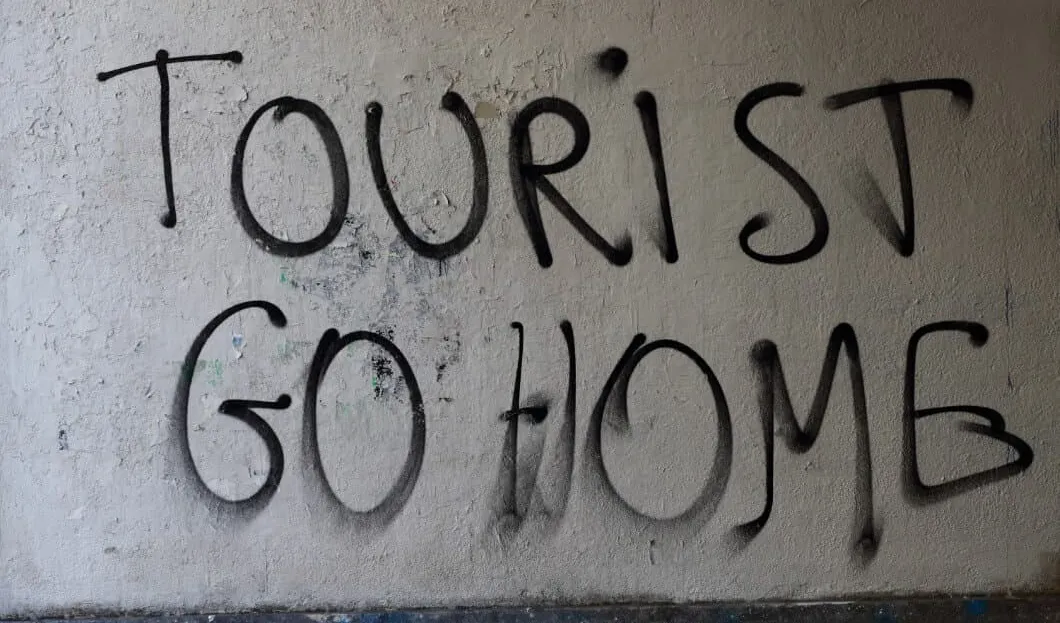
During the summer in Spain, many city streets are filled with the sounds of suitcase wheels instead of car engines. On Saturday, July 6th, in Barcelona, slogans like "Barcelona is not Disneyland" and "Tourists, go home" were chanted by nearly 3000 locals gathered on the Ramblas, one of the most iconic streets in the city. The protest was organized by over a hundred neighborhood associations, with participants expressing frustration at the overwhelming presence of tourists.
The region of Catalonia in Spain was visited by 18 million tourists last year, contributing to the 85 million total visitors to Spain in 2023. Tourism makes up 12.8% of the country's GDP and 12.6% of its jobs. However, there are concerns about the impact of tourist accommodation on the housing market.
Daniel Pardo, a member of the assembly of neighborhoods for tourism degrowth in Barcelona, stated that housing owners prioritize speculative activities over the city's and its residents' well-being. There are growing concerns about overtourism in major tourist destinations such as Catalonia, the Balearic Islands, the Canary Islands, and significant Andalusian cities. This has led to discussions about the fundamental right to housing being overshadowed by tourism demands.
Several demonstrations have been occurring for several weeks. The same observation is made every time: the increase in tourist accommodation like Airbnb is raising rents.
In Barcelona, rents have increased by 17.8%, and in the Canary Islands, by 13.6%. The number of these housing units is rapidly growing in the Atlantic islands. This is concerning, as 4% of the rental properties are already taken up by Airbnb. The popularity of Airbnb is not only driving up rents but also reducing the availability of long-term rental properties, making it even more difficult for residents to find affordable housing. Adding to this issue is that the region has the second-lowest median salary in the country (1630 euros gross per month) and the third-highest unemployment rate (16.2%).
Experts say there is no "tourismophobia" in Spain, which has welcomed tourists for over 60 years. The main concern is housing for residents. The Spanish central government is actively working on a law to regulate tourist accommodation, which is seen as a positive step. However, many feel that laws developed at the national level may not fully consider local conditions. Regional authorities in Catalonia and Barcelona are also taking steps to address the issue. For example, Barcelona's mayor has pledged to put 10,000 homes back on the market by 2029. Despite these efforts, there are still planned demonstrations in Alicante, Andalusia, and Palma de Mallorca, reflecting ongoing concerns. The commitment of both the central and regional authorities to address this issue is a positive sign for the future.













